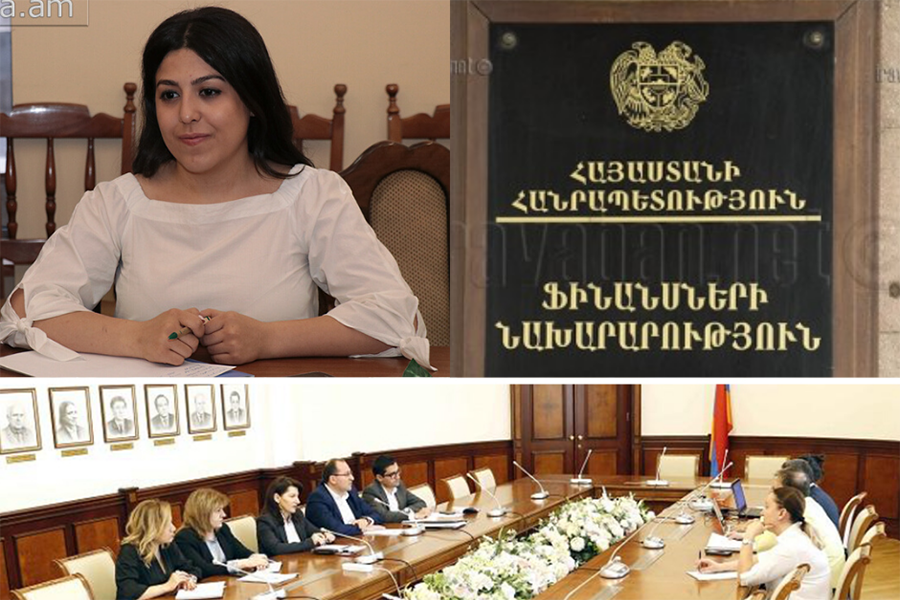
An Expert Discussion-Meeting on the involvement of Civil Society Organizations (CSOs) in the budjeting process in the scope of the themes on in the “MTEF” and “Citizen Budget” was held at the Ministry of Finance on 31 January 2020. Representatives of the Ministry of Finance Ruzanna Gabrielyan, ALA Law Expert Lusine Nalbandyan and Intern on International Cooperation Diana Aleksanyan, representatives of German International Cooperation Agency Vahan Sirunyan, and Karine Harutyunyan, and the representative of “Transparency International Anticorruption Center” Varuzhan Hoktanyan, attended the discussion
During the 2019, the ALA, as the Secretariat of the Civil Society Organizations Coalition Constructive Dialogue Network, coordinated more than two dozen public debates on the improvement of budget applications submitted to state agencies and made recommendations and comments; ALA experts presented as far as possible the issues raised during the process of reviewing the MTEF applications.
ALA Lawyer/Expert Lusine Nalbandyan noted, “By the Prime Minister’s decision, CSOs’ participation in the budget process has been formally and legally established. It is important at this stage to identify the main issues involved in organizing this process. In particular, it should be noted that the applicant authorities have delayed the process in 2019 in terms of timeframe and feedback. That is, there should be a clear guideline and timetable that will guide both CSOs and government bodies, clearly presenting the justifications for and/or rejected proposals. Another issue is that simply submitting/posting budget requests on the site is not enough to ensure involvement of a large number of CSOs and in as many areas as possible. Budget applications can be made more public, circulated and accessible through activation of CSO Networks, in addition to creating platforms. We face another issue: at what stage should the CSO be involved in this process? We need to create a model for CSOs to be involved in the design and development of budget applications. It is also important to note from the organizational aspect of the process, that at the meetings of the public authorities most often the persons responsible for the preparation of the applications were not sufficiently aware that the outcome indicators should be in line with the Methodology. And from this point of view, train CSOs and government experts at least in relation to Methodology Guidelines.”
Vahan Sirunyan, representative of the German International Cooperation Agency, proposed to create a platform for both CSOs and citizens, where all proposals will be collected and coordinated throughout the year. An important factor was the existence of an internal control system. This system will contribute to the efficiency of the work of the state bodies, eliminate existing shortcomings and create the opportunity to create a more improved system.
The participants agreed that the work of CSOs and government agencies needed mutual support and cooperation to carry out this process. The fact that CSOs do not yet have sufficient capacity was taken into account, so it was important to organize trainings for them.
The parties decided to cooperate with each other and come up with new suggestions as needed.
